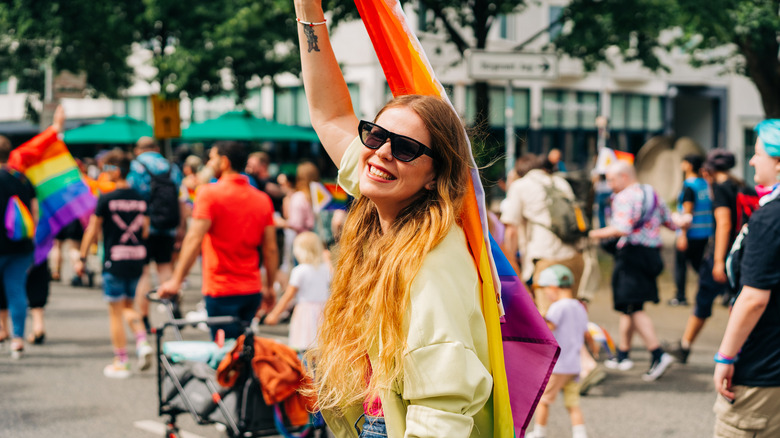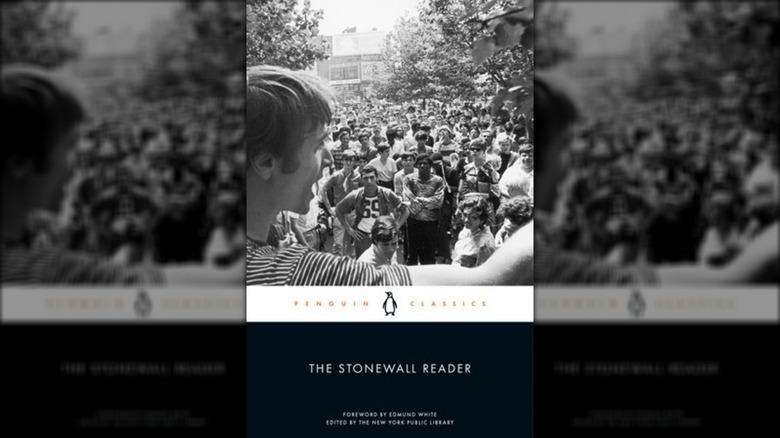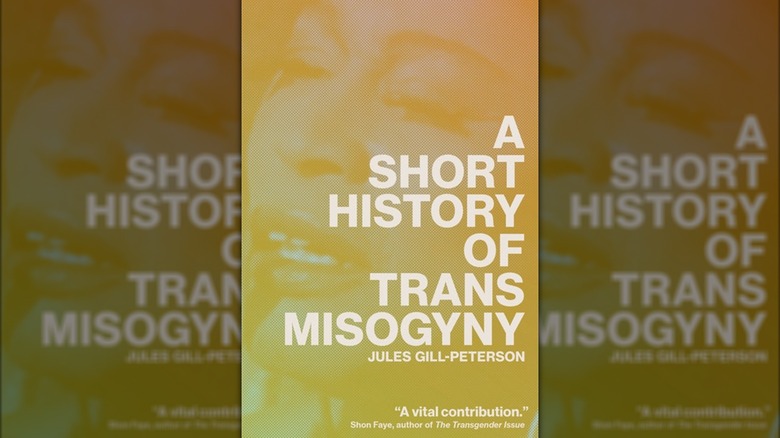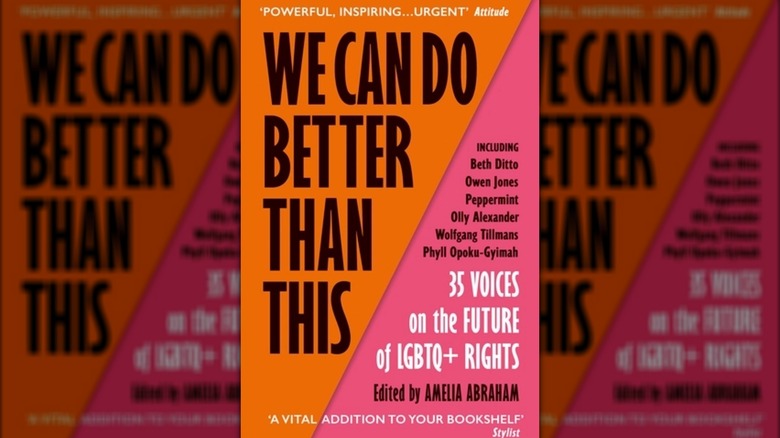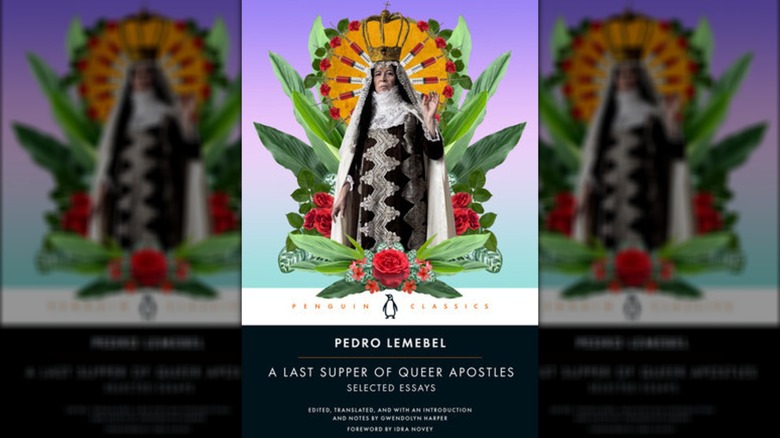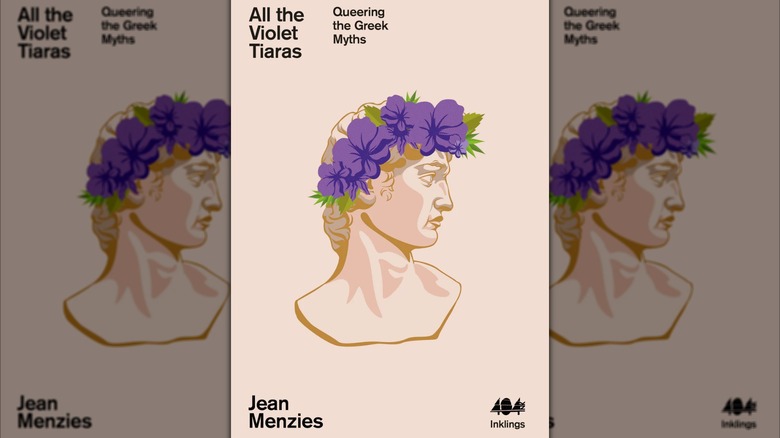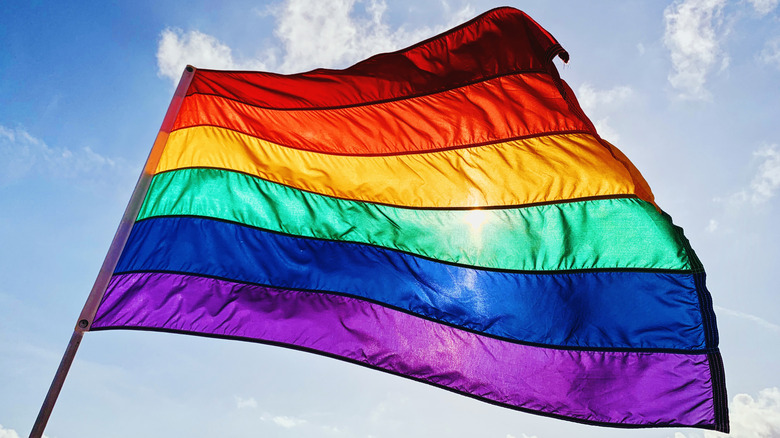5 Of The Best Nonfiction Books To Read During Pride Month 2025
Each June, as bunting goes up and parade routes are chalked out, Pride returns with its familiar collision of celebration and resistance. Born out of a bar raid at the Stonewall Inn, a New York City dive bar, in the summer of 1969, Pride has evolved from that raw defiance into a dazzling, defiant (and albeit increasingly commercial) yearly fixture.
Today, Pride exists in a strange double exposure: as a mainstream spectacle, and as a still-urgent protest. Because whilst the bunting goes up and the drag brunches sell out, it's a difficult time for the LGBTQ+ community in this country. Basic rights remain under threat, backlashes are codified, and, as always, visibility is unevenly distributed.
For those who can't — or don't want to — join the crowds, there are other ways to take part. It's perfectly okay to celebrate Pride in your own way if you aren't comfortable being out just yet. Naturally, there is an abundance of books that can make you laugh, cry, and learn during Pride Month. Nonfiction, especially, can offer a private solidarity and remind you of one crucial truth: you're not alone.
The Stonewall Reader
If we don't understand where we've come from, it becomes easier to misread the present and forget what was fought for — and what's still at stake. That's why "The Stonewall Reader," a historical primer, is essential reading. Edited by the New York Public Library, the collection gathers an unruly, affecting archive: personal testimonies, essays, news clippings, and manifestos from the years bracketing the 1969 uprising. The result is a portrait of a movement mid-gesture — a splintered, intimate record of a turning point in LGBTQ+ history.
In these raw documents, exhaustion sits alongside resolve; fury cuts through moments of vulnerability. Threaded through are voices that history would otherwise treat as footnotes — the women of Stonewall, including Marsha P. Johnson and others who rioted for rights and laid the groundwork for what would bloom into the modern LGBTQ+ movement.
Reading these accounts now, with old battles resurfacing under new language, recalls the conviction that shaped that summer. Progress remains fragile, and "The Stonewall Reader" reminds us that it must be insisted on, again and again.
A Short History of Trans Misogyny by Jules Gill-Peterson
Why are trans women so often cast as symbols of danger or provocation? In "A Short History of Trans Misogyny," Jules Gill-Peterson cuts through the stigma to ask how trans femininity became such a charged cultural fault line — and who benefits from keeping it that way. Stepping back from the scaremongering headlines and identity labels, she constructs a methodical excavation of how institutions have come to treat transfeminity as something dangerous to be managed.
Gill-Peterson identifies several interlocking systems – colonial rule, racial segregation, labor exploitation, the carceral state, the mainstream media, and militarized policing – that have historically converged on "trans-feminized people." This term — her own — refers to individuals perceived as expressing trans femininity, regardless of their gender identity. The aim, she explained on NPR's "Code Switch," was to give language to a group "who experience trans misogyny without being trans women," pushing beyond the limits of Western gender categories.
Rather than treating these acts of violence as isolated, Gill-Peterson draws connections across sites and centuries: the criminalization of hijra communities under British rule, the sensational press surrounding Mary Jones in 19th century New York, the murder of Jennifer Laude by a US soldier in the Philippines. This lays out how transphobia is maintained through institutional design, proving why its undoing demands more than representational fixes.
The rigor has resonated. "A Short History of Trans Misogyny" has been described by readers as one of the most important recent works in trans studies. Its strong reception on Goodreads — a 4.34 rating — concurs. For anyone trying to understand why trans women remain in political crosshairs, and how to think beyond the limits of visibility politics, this is a strong place to start.
We Can Do Better Than This
The current moment doesn't lend itself easily to optimism. LGBTQ+ life is increasingly discussed in extremes with little room for the subtleties of lived experience. It's easy, as a result, for fatigue to settle over queer existence, but "We Can Do Better Than This" doesn't accept despair as the final word. Amelia Abraham brings together a wide-ranging band of voices — including Olly Alexander, Peppermint, Naoise Dolan, and Shon Faye — who begin to sketch out what queer futures could look like, and how we might get there.
Each of the 35 contributors addresses a different piece of the puzzle: safety, joy, loneliness, dating apps, racism, transphobia, healthcare, housing, body politics. It's messy and generous in its questioning of how we treat each other, what we've inherited, and what we're still building.
Near the heart of it, one writer reflects on the pull between the desire for ease and the reality of being seen as disruptive. "It is normal for each person to assume that where they're at has always been that way. We just want to be able to love the way we love and be left alone, be left in peace. At the same time, the way we are poses a huge challenge perceived as a provocation to society." This contradiction runs beneath many of the essays.
As you move through the book, your thinking may begin to bend in an unexpected direction — perspectives you hadn't considered, habits that might be worth unlearning. By the end, you'll close the book feeling that something else is possible. There is a better world for each and every one of us, if we're willing to keep going from here.
A Last Supper of Queer Apostles by Pedro Lemebel
Pedro Lemebel wrote from the edge of a country, and from the edge of a plague. In "A Last Supper of Queer Apostles," deftly translated by Gwendolyn Harper, his work arrives in English with the heat it has long carried elsewhere. The essays — barbed and theatrical — come out of Santiago in the years when the dictatorship was crumbling and the AIDS crisis was taking hold. With this, English readers are finally given access to a body of work that has long defined queer resistance in Latin America, from the crucial, singular voice of Pedro Lemebel.
These short essays slip between reportage, fiction, gossip, and elegy. Through them, Lemebel offers a unique perspective on queens fading in hospital wards, intimacy unfolding under tyrannical surveillance, a literary gathering unfolding just above a site of state violence. The writing is campy and acerbic; the tone, acidic and lush. Broken open by tenderness when least expected, Lemebel's writing carried risk because it had no other option. To read him now is to respect an honest, integral disruptor in the evolving canon of queer literature.
All the Violet Tiaras by Jean Menzies
History often speaks with authority, but not always with honesty. It tends to speak in the voice of power, leaving out what doesn't fit the narrative. In "All the Violet Tiaras," ancient historian Jean Menzies returns to the stories of Classical Greece to set the record straight, examining the spaces where queerness once existed, and where modern reception has intervened since.
For a culture that gave us Sappho, and the ever-mythologized bond between Achilles and Patroclus, queerness in ancient Greece is richer than textbook accounts have suggested. Menzies gestured towards those complexities whilst also honoring the myths queer writers and readers are shaping today. Her deep affection for women in ancient Greece is palpable, and the book's most striking passages explore what female intimacy and queer longing may have looked like under past conditions.
"All the Violet Tiaras" feels both gentle and defiant. One Goodreads fan described it as "a breath of fresh air." This book joins a growing conversation about who gets to speak through history, and reminds us that mythology has always been a place where the marginalized find ways to endure and speak back.
How we chose the books
There is no fixed pattern to the queer experience. It's expansive and kaleidoscopic, and constantly being redefined. The books gathered here hope to reflect that range: some through voice, bringing many into one space, others in content — honing in on a particular part of LGBTQ+ history.
We looked first to those immersed in the conversation: queer-led bookshops around the world, LGBTQ+ literary communities, writers and readers who have been mapping their own paths through culture. From there, we considered how these books have resonated — in critical reception, but also on platforms like Goodreads, where the conversation on LGBTQ+ reading becomes more personal. Whilst star ratings gave us a rough temperature check, we also focused on the quality of engagement. We looked for reviews that spoke to emotional impact, that described how a book clarified something, found new perspectives on queer history and community, and helped bridge personal experience with collective memory. All of these factors helped us identify titles that were both timely and lasting, so as to serve anyone who wants to read into Pride Month with depth and celebration.
